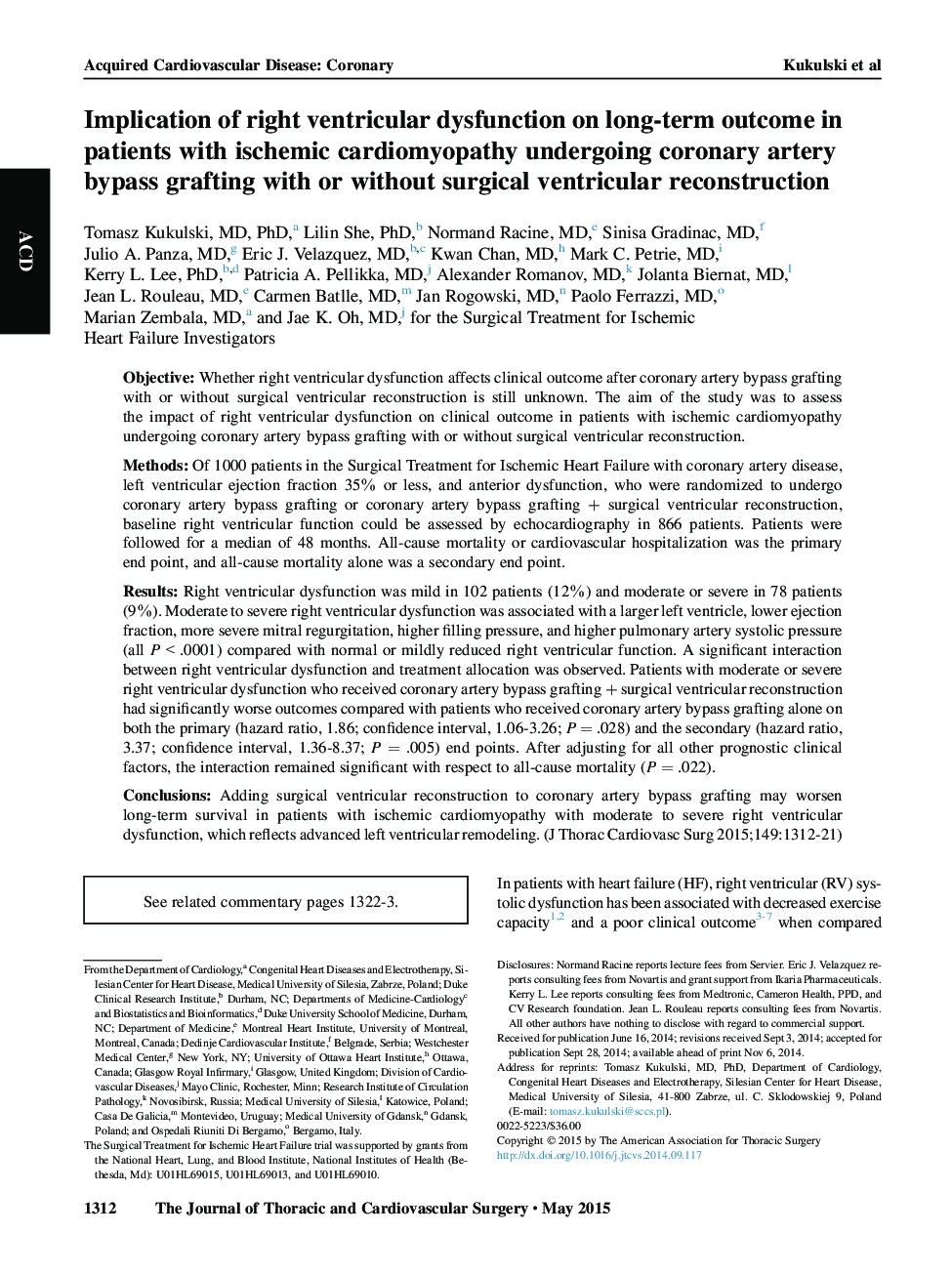| Article ID | Journal | Published Year | Pages | File Type |
|---|---|---|---|---|
| 2979565 | The Journal of Thoracic and Cardiovascular Surgery | 2015 | 10 Pages |
ObjectiveWhether right ventricular dysfunction affects clinical outcome after coronary artery bypass grafting with or without surgical ventricular reconstruction is still unknown. The aim of the study was to assess the impact of right ventricular dysfunction on clinical outcome in patients with ischemic cardiomyopathy undergoing coronary artery bypass grafting with or without surgical ventricular reconstruction.MethodsOf 1000 patients in the Surgical Treatment for Ischemic Heart Failure with coronary artery disease, left ventricular ejection fraction 35% or less, and anterior dysfunction, who were randomized to undergo coronary artery bypass grafting or coronary artery bypass grafting + surgical ventricular reconstruction, baseline right ventricular function could be assessed by echocardiography in 866 patients. Patients were followed for a median of 48 months. All-cause mortality or cardiovascular hospitalization was the primary end point, and all-cause mortality alone was a secondary end point.ResultsRight ventricular dysfunction was mild in 102 patients (12%) and moderate or severe in 78 patients (9%). Moderate to severe right ventricular dysfunction was associated with a larger left ventricle, lower ejection fraction, more severe mitral regurgitation, higher filling pressure, and higher pulmonary artery systolic pressure (all P < .0001) compared with normal or mildly reduced right ventricular function. A significant interaction between right ventricular dysfunction and treatment allocation was observed. Patients with moderate or severe right ventricular dysfunction who received coronary artery bypass grafting + surgical ventricular reconstruction had significantly worse outcomes compared with patients who received coronary artery bypass grafting alone on both the primary (hazard ratio, 1.86; confidence interval, 1.06-3.26; P = .028) and the secondary (hazard ratio, 3.37; confidence interval, 1.36-8.37; P = .005) end points. After adjusting for all other prognostic clinical factors, the interaction remained significant with respect to all-cause mortality (P = .022).ConclusionsAdding surgical ventricular reconstruction to coronary artery bypass grafting may worsen long-term survival in patients with ischemic cardiomyopathy with moderate to severe right ventricular dysfunction, which reflects advanced left ventricular remodeling.
